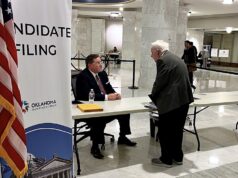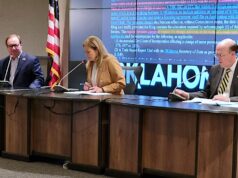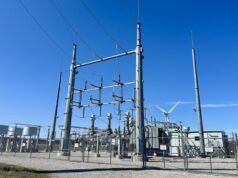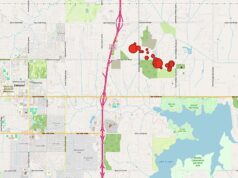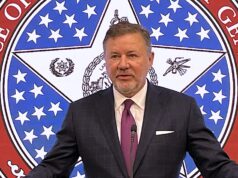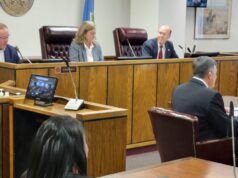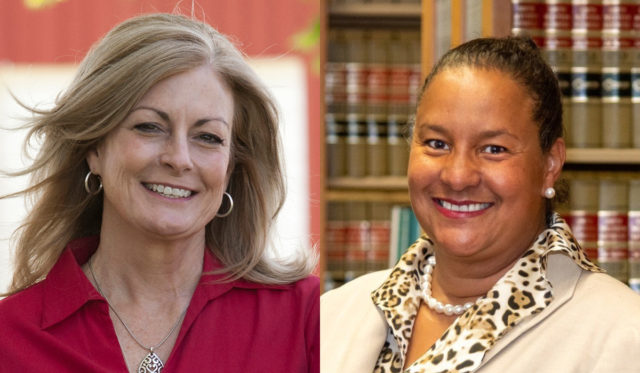

University of Tulsa law professor and water and energy resources expert Warigia Bowman, Sen. Kim David (R-Porter) and independent Don Underwood are on the Nov. 8 ballot for an open seat on the Oklahoma Corporation Commission, a constitutional body with broad regulatory authority that often flies under the public radar.
The catastrophic October 2020 ice storm and the historic February 2021 winter storm both sparked debate over Oklahoma’s grid infrastructure, utility rates and who should be responsible for the costs when it comes to damage and extreme fuel prices caused by weather events.
Oklahomans across the state elect three members of the Corporation Commission to six-year terms. Commissioners have numerous duties, including oversight of oil and gas production and regulation of telecommunications, transportation and utility issues.
Oklahoma’s general election will be held Tuesday, Nov. 8, and polls will be open from 7 a.m. to 7 p.m. Early voting at county election boards runs from Wednesday, Nov. 2, through Saturday, Nov. 5.
‘People need a consumer advocate’
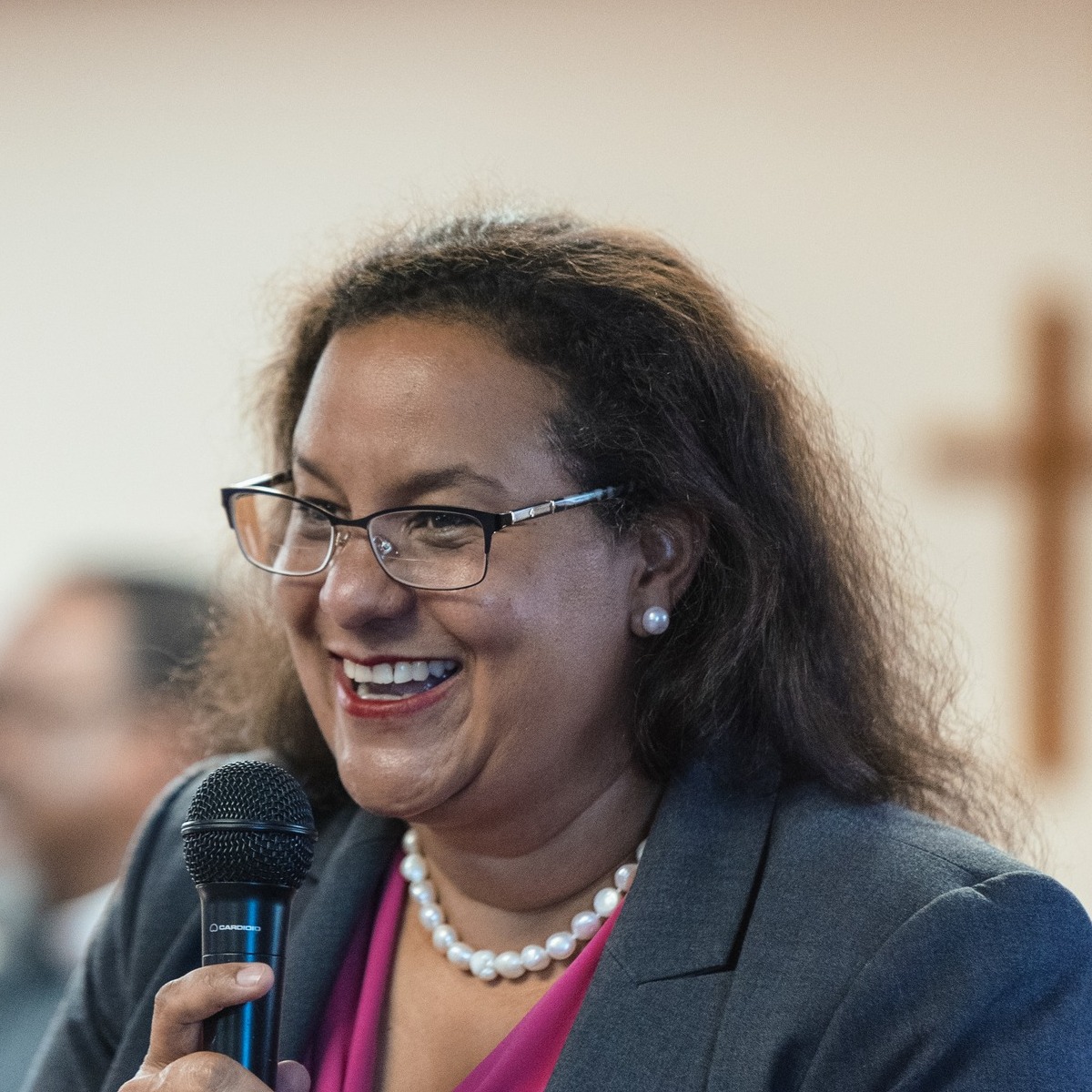
Bowman teaches water, natural resources and energy law at the University of Tulsa. Before becoming a professor, she served as an attorney for the U.S. Department of Justice.
Bowman touts her credentials as an expert on public policy, infrastructure, water and energy on her website. She said she’s running to make sure consumers have an advocate on the Corporation Commission.
“People need a consumer advocate,” Bowman said in an interview with NonDoc. “These utility rates are completely out of control and the commission isn’t doing its job. We don’t need someone who will be partisan. I may not be in the same party as (Commissioner) Bob Anthony, but we have many of the same views.”
Bowman cited concerns about how Oklahoma securitized 2021 winter storm-related ratepayer debt as another reason she decided to run. Four regulated electric and gas utilities have used a securitization program created by the Oklahoma Legislature to pay off debt from high fuel prices, and while the effort has been promoted as a way to spread bill increases out over decades, Bowman and others have criticized the utilities for being caught without adequate fuel resources during the storm.
“There’s no reason whatsoever Oklahoma consumers should be paying these bills,” Bowman said. “The Corporation Commission should have told these utilities it is their duty to be ready for storms. OG&E made $227 million in the first quarter of 2022. They made a hefty profit. I’m very skeptical of the requests from utilities. Again, if the OCC was doing its job and the AG was doing his job, then consumers wouldn’t be paying these bills.”
Bowman said the storm events like those in 2020 and 2021 occur more frequently than they are portrayed, and she said Oklahomans need to anticipate them occurring more frequently.
“The ice storms were a tragic comedy, because they ranged from Canada to Mexico, and many of the northern states didn’t have a problem like Oklahoma did,” she said. “We get a storm like that every 10 years or so. It’s not a 100-year event like some have said.”
Bowman also believes the state’s grid could use an upgrade, especially in outlying rural areas.
“The grid tends to have trouble in rural areas,” she said. “Parts of it are old, going back more than a century, and others are newer and in good shape. What we need to do is an audit to figure out what areas need the most improvement, and then we can take federal infrastructure and jobs money and spend it wisely in a targeted way to bring it up to a higher standard. The bottom line is this is not a cost ratepayers should have to absorb.”
Bowman says establishing broadband internet in all parts of the state is critical to the state’s future.
“We need internet in every county,” she said. “I’ve met kids on the campaign trail who have to do their homework at McDonalds or outside Walmart. Years ago, we solved the issue of rural telephone access, and I think that’s something we can solve with the internet as well.”
Bowman said she favors the implementation of renewable energy sources, but that a need remains for traditional fossil fuel sources like natural gas. She forms of energy as opponents of one another.
“There’s no real conflict now because 60 percent of our energy comes from gas, so there’s no way we could function without oil and gas,” she said. “I drive a car. I like to cook on gas. I have no problem with all of that. The issue is, are we using this resource as wisely as possible. We waste a lot of it through flaring. It’s like burning $100 bills. You’re taking a precious resource and throwing it in the garbage, and you’re harming the environment in the process. It’s a practice that needs to end.”
Bowman said those in the industry she’s met aren’t opposed to ending the practice of flaring.
“I’ve asked them what it would take to stop flaring and venting, and they want a tax credit,” she said. “I think that’s the tradeoff, cleaner air and less waste for a tax credit. I think I can live with that.”
When asked how she differs from her opponent, Bowman said she will not make nonpartisan issues partisan if elected.
“I am a patriot and a military sister. I am incredibly qualified for this job. I teach utility regulation and energy regulation,” Bowman said. “I have published on issues like water depletion and renewable energy, oil and gas, in Oklahoma and Texas. I have a high level of expertise on these issues that require people who can talk to colleagues. These are not partisan issues.”
‘I think I could make a difference there’
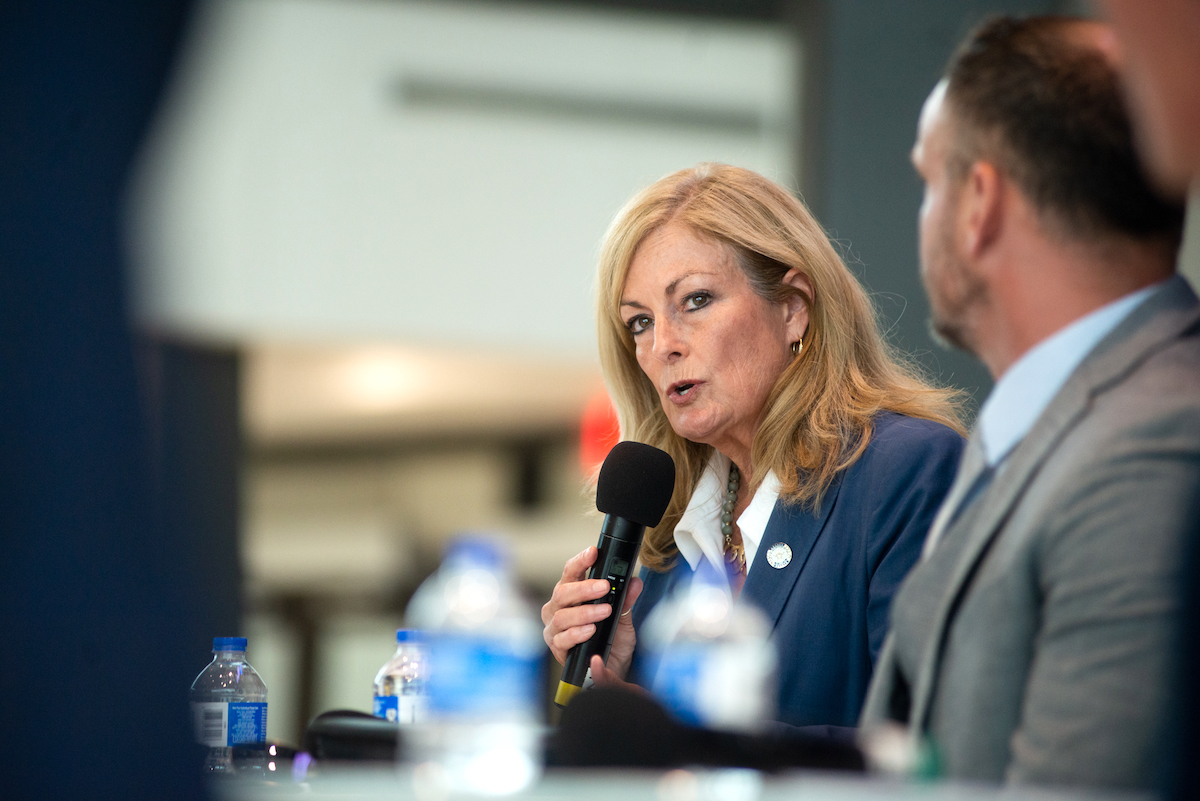
During her time in the Oklahoma Legislature, David became the first woman in Oklahoma history to serve as Senate majority leader. David, who is term limited, also owns a property rental business and has worked in petroleum marketing. David attended Oklahoma State University, where she earned her undergraduate degree in petroleum geology.
During a June debate hosted by NonDoc, David said she got into the race for Corporation Commission after some deliberation.
“I actually had a friend ask me if I had considered the Corporation Commission,” David said. “I took about six months to think it over. After meeting with (current Commissioners) Dana (Murphy) and Todd (Hiett), I decided, ‘I think I could make a difference there.’”
David was among those involved in crafting the securitization policy in the Legislature. She recalled her own experience recovering from the ice storm that caused widespread damage to her property.
“We couldn’t leave the house without a chainsaw, but because of all that breakage and all the lines being down, we couldn’t get power to us for three weeks,” David said. “It was desperate times in my area of the state. What we learned from that is that it’s really important — no how much we hate that the electric company comes and trims our limbs back — it’s really important when it comes to winter because it saves us and it keeps the power on.”
She said the securitization plan approved by the Legislature was the right thing to do in order to shield consumers from catastrophic costs after energy prices spiked during the 2021 storm. In some states, consumers saw massive increases in their bills, something David wanted to avoid in Oklahoma.
“I will tell you, we spent a lot of long hours,” David said in June. “We had the Corporation Commission at the table. Look, the current law is those costs — the costs of power — are passed down to the consumer. If we hadn’t stepped in and done something and (had) let those costs be pushed directly through — if those costs had been pushed directly through to the consumer, it would have bankrupted families. It would have bankrupted businesses. We would have had communities that were going to be bankrupted.”
David said had she been on the Corporation Commission when the utility securitization plan was approved, she would have voted for it. The three member commission voted 2-1 in favor of securitization and gave companies OG&E, ONG and PSO the ability to add a surcharge to every consumer’s monthly bill for decades.
“It wasn’t easy to come up with that decision, but what we did was look at how other states dealt with those disasters, and they do securitization,” she said. “That allowed utilities to bond that debt at the lowest rate possible using the ratepayer as the payer. That was the best solution. It was the cheapest solution for the ratepayer. I know no one likes to see that cost on their bill, but no one would have liked to have gotten a gas bill for $3,000 and an electric bill for $2,800. It was unsustainable. I felt like it was the right thing to do at the time, and I still do.”
David said one of the best assets she has is bringing different parties to the table to solve problems, something she said she demonstrated in the senate.
“I proved during that time I was really good at bringing people together to come up with the best solutions,” David said in June. “We made some really hard decisions during those two years. I still have a little PTSD thinking back on how hard those days were. But what that shows is I will work tirelessly to find the right answer. You can’t out-work me.”
David has raised money from people in the utility and the oil and gas industries during her campaign. During the June debate, David was accused by GOP primary opponent Justin Hornback of being influenced by those industries, given the amount of money contributed to her campaign.
“I can’t be bought. Raising money is not saying you are beholden to somebody because they are supporting your campaign,” David said. “People supporting your campaign means they are supporting you.”
Third candidate’s campaign dormant
Underwood is running as an independent. However, he has no active campaign website or social media channels.









